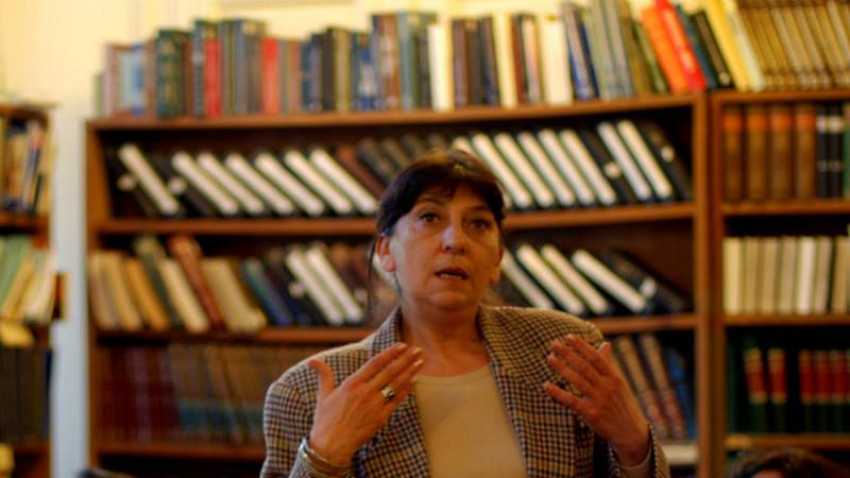What the world looked like through the eyes of our ancestors, who lived more than 100 years ago? A travelogue collection from the beginning of the 20th century answers this question. The anthology “Bulgarians traveling the world in the early 20th century” consists of first person stories of four Bulgarians from that period. This extraordinary journey in space and time reveals in an exciting way the increased self-confidence, the curiosity about unknown lands and the longing for new horizons after the liberation of Bulgaria from the five-century Ottoman rule. Rumiana Pencheva, curator of the National Literature Museum, is the author of the book.
“It is not difficult for me to come across such travelogues, because I work in a museum and I find many interesting things every. This is how I found an exquisite silk-bound book – Radi Radev’s travelogue “Egypt, South Arabia and East Africa” written in 1906. The book has wonderful illustrations, photos and maps, because it was written by a journalist who was also a keen discoverer. He wrote travel notes with the clear awareness that he was the first Bulgarian to pass through these places. He acquaints us with the construction of the Suez Canal, with different nature phenomena, etc.

The collection consists of 3 other travelogues, including Hristo Sokolov’s travelogue which takes us in America. The author describes impressive industrial landscapes meanwhile warning of the plight of the emigrants overseas. Danail Ruevski’s travelogue revealing the world of the Hawaiian Islands is also quite interesting.
“Danail Ruevski is also an extremely interesting person and his travelogue contains plenty of humor and photos- a color explosion of emotions and beautiful natural descriptions of every island. The travelogue acquaints us with the Hawaiian education system. Danail Ruevski published the travelogue in the beginning of the 20th century.”
The fourth travelogue from the abovementioned collection is written by Anton Bozukov – a person with encyclopedic knowledge and a cosmopolitan figure. He lived in Japan for one month and kept records there. He visited theatre plays, went to a Japanese bath and visited local restaurants and hotels… Bozukov is the first Bulgarian to acquaint us with life in Japan.
It is notable that all four authors coped well with all challenges they faced abroad.
“They are artists and great personalities. Their travelogues are our mirror. We learn how difficult people traveled in the past. Their journeys required preparations in advance. They did not know what they will come across during their trips and how to avoid the obstacles. But they did great. This happened shortly after the liberation of this country in 1878. After a five-century Ottoman rule, they were again able to look beyond the stone wall of their house. Those who had the opportunity to travel around the world felt somehow obliged to share it with others. Bulgarians were open to the world, but they considered it obligatory to share their experience with the future generations” – Rumiana Pencheva concludes.
Compiled by: Veneta Nikolova / on interview of Alexander Hristov, BNR Hristo Botev Channel
English version: Kostadin Atanasov
Photos: helikon.bg, pixabay, E. Voleva
Passion Week is the last week before Easter. It is also the most austere week of fasting at the end of the long Great Lent, which prepares the faithful for Christ's Resurrection. It begins after the Sunday on which Christians celebrate the Lord's entry..
The Zograf Monastery on Mount Athos has a new abbot. Hieromonk Gavriil has been elected as the new abbot of the monastery, reported the website of the Bulgarian Orthodox Church. "On Lazarus Saturday, the Zograf Monastery on Mount Athos held elections to..
Pipes from the end of the 17 th , the 18 th and the 19 th century and the tradition of growing tobacco in Bulgaria are presented in the newest exposition at the Museum of Archaeology in Burgas. “Pipes like this are to be found often on the..
Passion Week is the last week before Easter. It is also the most austere week of fasting at the end of the long Great Lent, which prepares the faithful for..

+359 2 9336 661
